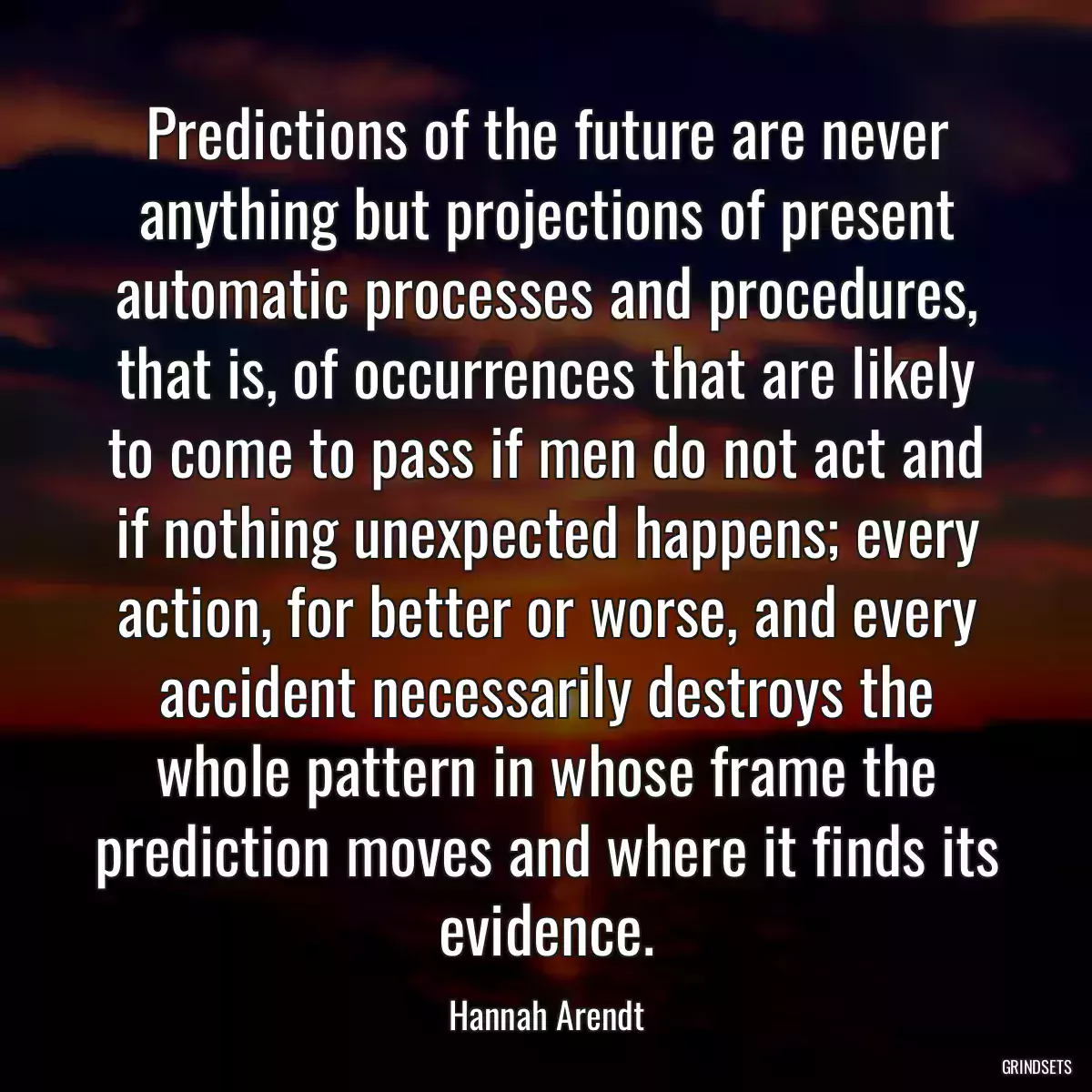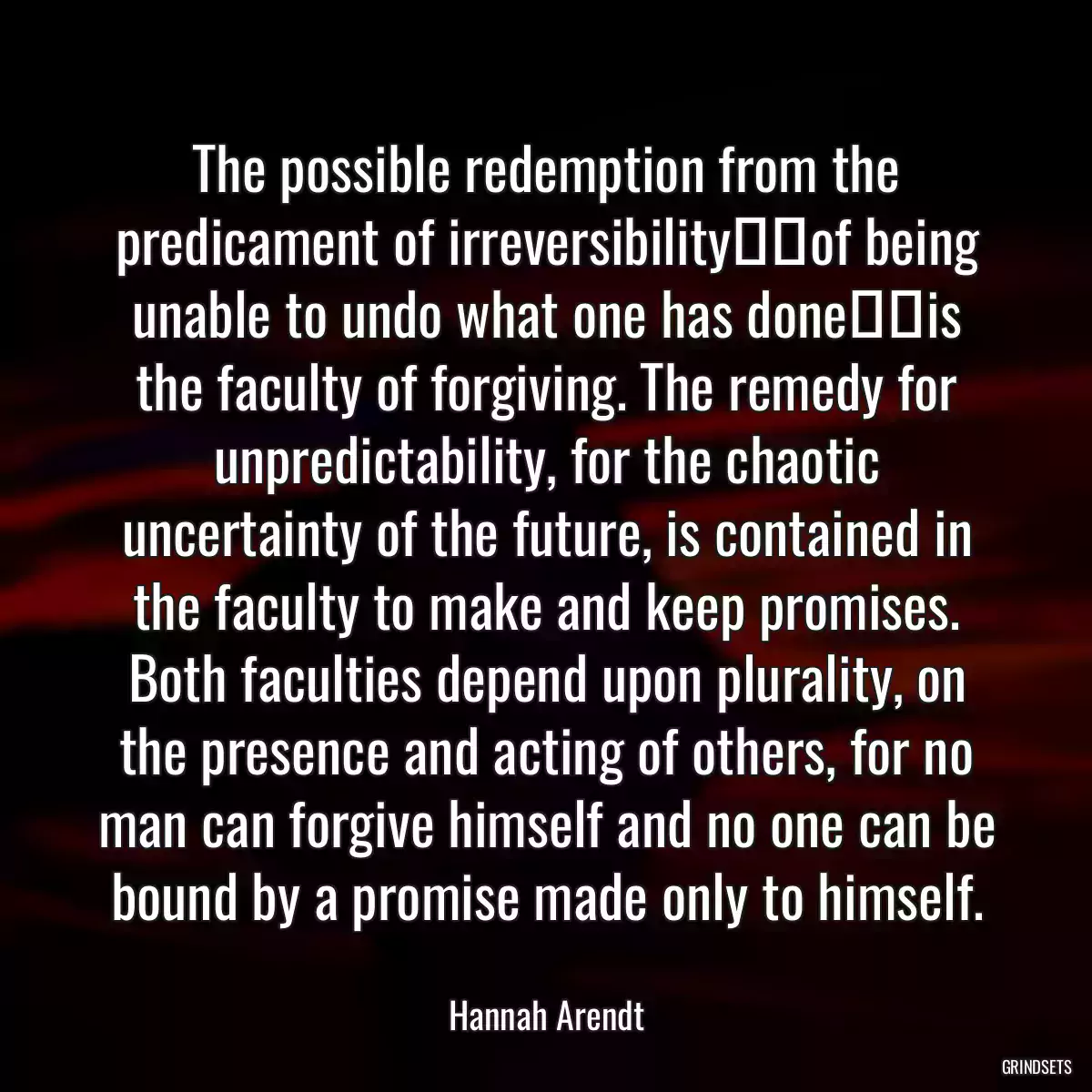
Predictions of the future are never anything but projections of present automatic processes and procedures, that is, of occurrences that are likely to come to pass if men do not act and if nothing unexpected happens; every action, for better or worse, and every accident necessarily destroys the whole pattern in whose frame the prediction moves and where it finds its evidence.

